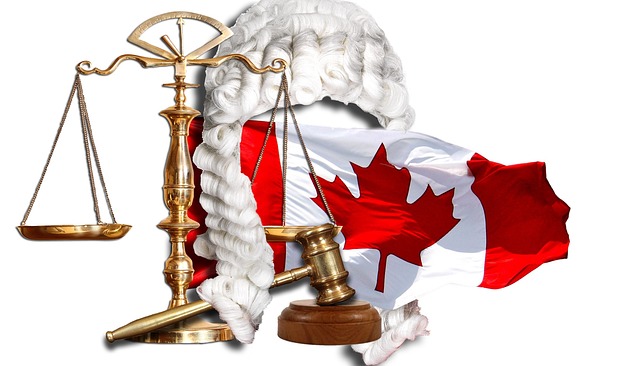Fraudulent financial practices, from accounting fraud to investment scams and insurance deceit, require meticulous preparation for administrative law hearings, where evidence decides guilt and penalties. Key Preparation Tips for Administrative Law Hearings include organizing relevant documents, seeking expert legal counsel, crafting strategic arguments, and effectively presenting evidence using charts and concise language. Legal professionals guide clients through complex proceedings, ensuring well-prepared cases that can lead to favorable outcomes, including jury trials. Post-hearing appeals are crucial, requiring careful navigation of procedures for successful verdicts.
Fraudulent financial practices pose significant risks to individuals, businesses, and the economy. This comprehensive guide delves into the intricate world of administrative law hearings, offering valuable preparation tips to strengthen your defense. From understanding the definition and common types of financial fraud to mastering the art of gathering and presenting evidence, this article equips you with essential strategies. Learn how to counter allegations effectively and navigate post-hearing procedures, ensuring a robust and informed approach to these critical legal proceedings.
- Understanding Fraudulent Financial Practices: Definition and Common Types
- Preparations for Administrative Law Hearings: Building a Solid Defense
- Gathering and Presenting Evidence Effectively in Financial Cases
- Legal Strategies to Counter Allegations of Fraud
- Post-Hearing Procedures and Appeals: What to Expect After the Hearing
Understanding Fraudulent Financial Practices: Definition and Common Types

Fraudulent financial practices refer to a range of illegal activities designed to manipulate or deceive individuals and organizations for personal gain. These practices often involve false representations, manipulation of financial records, and exploitation of trust. Understanding what constitutes fraudulent behavior is crucial as it enables better preparation for administrative law hearings, where evidence and arguments are presented to determine guilt and penalties.
Common types of fraud include accounting fraud, where financial statements are manipulated; investment scams, which lure investors with false promises; and insurance fraud, involving exaggerated or fabricated claims. Recognizing these various forms is a critical preparation tip for anyone facing charges or participating in administrative law hearings, especially when aiming to achieve extraordinary results in legal disputes, whether through general criminal defense strategies or alternative methods like jury trials.
Preparations for Administrative Law Hearings: Building a Solid Defense

When facing administrative law hearings related to fraudulent financial practices, thorough preparation is key to building a solid defense. Start by gathering all relevant documents and records that can support your case. This includes financial statements, contracts, emails, and any other evidence that might contradict the allegations of fraud. Organize this information in a structured manner for easy reference during the hearing.
Engage experienced legal counsel who specializes in administrative law to help you navigate the complex procedures. They can provide valuable preparation tips, such as identifying potential weaknesses in the prosecution’s case and crafting strategic responses. With their guidance, prepare compelling arguments that focus on factual inaccuracies, procedural errors, or any mitigating factors. Aim for a winning challenging defense verdict by presenting your case clearly and persuasively, ensuring you have robust evidence to avoid indictment across the country.
Gathering and Presenting Evidence Effectively in Financial Cases

In financial cases, especially high-stakes ones involving complex administrative law hearings or jury trials, the presentation of evidence is paramount to achieving extraordinary results. Effective preparation tips are crucial for navigating this landscape. Collect and organize documents meticulously, ensuring they are accurately labeled and easily accessible. Witness statements should be thoroughly reviewed and corroborated with supporting documentation to build a robust case. Legal experts recommend employing visual aids like charts and graphs to simplify intricate financial data, making it more digestible for judges or juries.
Presenting evidence in a clear, concise, and structured manner is essential. Start by outlining the key points you wish to convey. Use direct and unambiguous language to avoid confusion. Demonstrate cause-and-effect relationships between fraudulent practices and their consequences. For instance, showcasing how manipulated financial records led to significant losses or illegal gains can strengthen your argument. This strategic approach ensures that even complex financial cases become comprehensible, increasing the chances of a favorable outcome in court or during administrative hearings.
Legal Strategies to Counter Allegations of Fraud

When facing allegations of fraudulent financial practices, a robust legal strategy is essential to counter these charges effectively. One crucial aspect involves meticulous preparation for administrative law hearings. This includes thorough document review, identifying relevant evidence, and understanding the specific regulations that may be implicated in the case. Legal professionals can provide invaluable guidance on how to navigate these complex proceedings, ensuring clients are well-prepared to present their side of the story.
Additionally, crafting a strong defense strategy involves examining the facts from multiple angles and identifying potential loopholes or inconsistencies in the allegations. By combining thorough preparation tips for administrative law hearings with a deep understanding of financial regulations, legal teams can achieve extraordinary results for both corporate and individual clients, minimizing damage to their reputation and ultimately clearing their names across the country.
Post-Hearing Procedures and Appeals: What to Expect After the Hearing

After a financial practices hearing, several procedures and appeals post-hearing come into play. The first step typically involves reviewing the administrative law judge’s decision, which is then followed by filing an appeal if either party disagrees with the outcome. This process demands meticulous preparation, as evidenced by successful cases where winning challenging defense verdicts have been secured for his clients.
Understanding the nuances of administrative procedures and appealing is crucial. Preparation tips for these hearings include gathering comprehensive evidence, presenting persuasive arguments, and addressing any procedural errors that might have occurred during the initial hearing. It’s a complex landscape, but with careful navigation, it becomes possible to secure favorable outcomes, even in cases that advance to jury trials.
Navigating fraudulent financial practices cases requires a robust understanding of both the legal landscape and the unique challenges these hearings present. By equipping yourself with Preparation Tips for Administrative Law Hearings, you can build a solid defense, effectively gather and present evidence, and employ strategic legal arguments to counter allegations. Post-hearing procedures and appeals demand meticulous attention to detail, ensuring you’re prepared for every step in this intricate process. Remember that, through diligent preparation and a comprehensive approach, success in these hearings is within reach.






